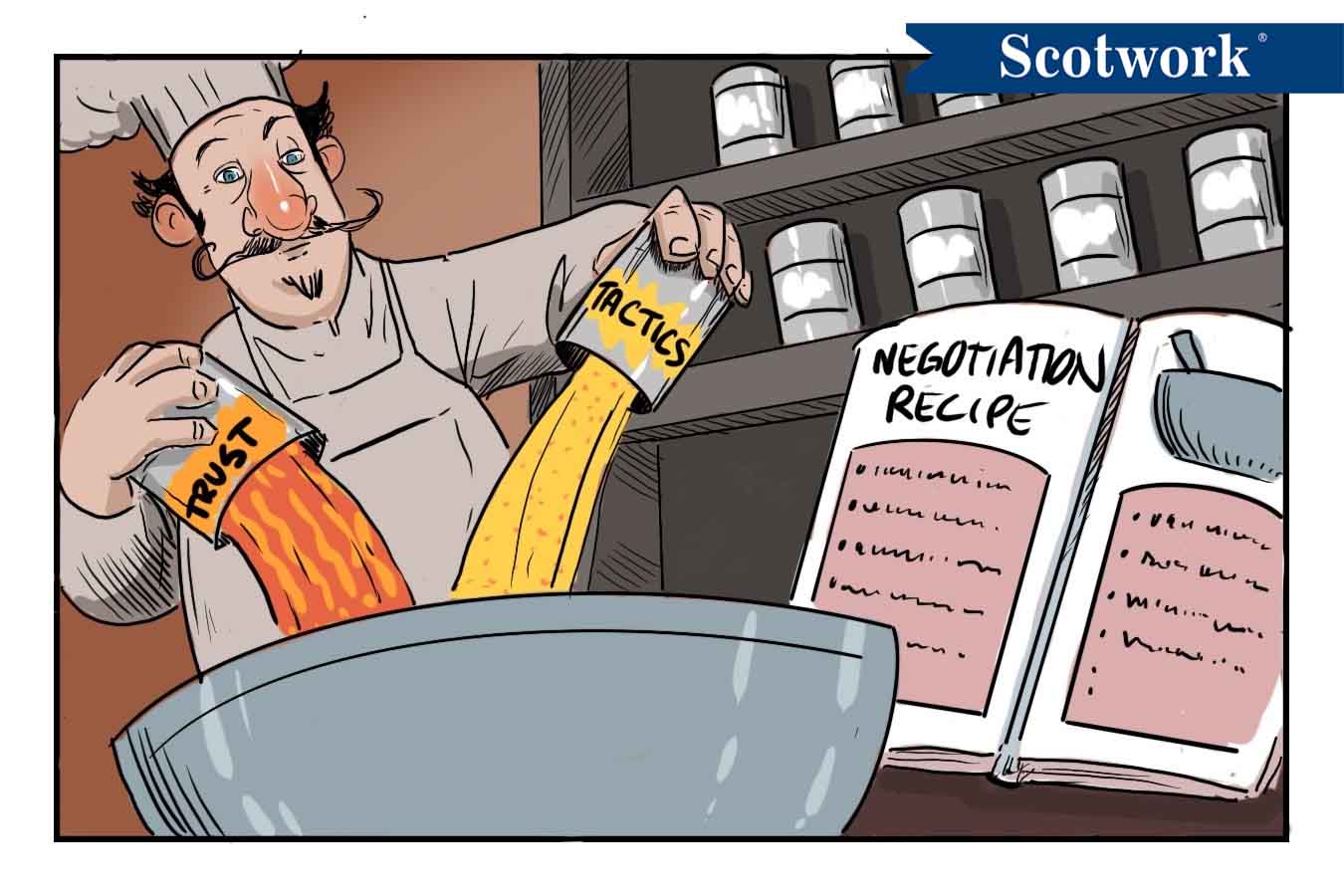I was recently reminded of a saying: Negotiations are built on trust, not tactics. Without trust, even the best deal structures fall apart. Still, it would be a mistake to dismiss tactics. They’re not tricks, they’re tools. When used thoughtfully, tactics help build trust, manage the negotiation, and ensure both sides reach an outcome they can commit to.
Trust without skilled tactics risks stalling a negotiation. Skilled tactics without trust risk making the deal adversarial. The best negotiators understand that you need both: trust as the foundation and tactics as the scaffolding. Here are 5 tips for how to use both to your advantage.
Start with rapport, not demands.
Rapport is often seen as “soft” or optional, but it’s a tactical choice. First impressions matter. When you walk into a negotiation, it’s tempting to dive straight into your agenda and start with your objectives and demands. But taking time to connect and find common ground, or simply showing genuine curiosity about the other person, sets a different tone. Rapport lays the foundation for trust. It signals that you see the other party as a partner, not an obstacle.
Look for opportunities to start rapport-building before the formal negotiation. If you wait until you’re at the table, it can feel superficial or manipulative. But even in late-stage discussions, opening with curiosity about the other side helps lower defenses and paves the way for constructive dialogue.
Motives matter.
Every negotiator has positions (“I need this price”). However, many dive right into their positions without giving any context regarding why their positions matter. When people are left to fill in the blanks, they rarely assume the best. Sharing motives is both a tactical move and a trust-building act. It invites creativity and helps prevent conversations from getting stuck on rigid demands.
Share your motives with the other side. Give them context for your demands before making them (“I need predictability in my budget”). Sharing motives is both a tactical move and a trust-building technique. It demonstrates openness, stimulates creative thinking, and helps move the negotiation forward.
Listen more than you talk.
Active listening is one of the most effective negotiation tactics, and it directly builds trust. Asking thoughtful questions, summarizing what you’ve heard, and checking for understanding signal respect. This tactic ensures clarity, but it also sends a message: “I care about getting this right for you.” When people feel heard, they reciprocate with honesty, which deepens trust and accelerates agreement.
Listening deeply gives you insight into the other side’s needs, motives, constraints, and priorities. That knowledge becomes an advantage. It helps you craft stronger proposals and build more durable deals.
Keep your promises — big and small.
Following through on commitments, no matter the size, is a tactic that builds trust. If you say you’ll send data by the end of the day, do it. If you promise to revisit a topic later, circle back. Reliability isn’t just a personal virtue; it’s a negotiation strategy. Each fulfilled commitment signals that your word matters, which makes it easier for the other side to accept bigger proposals or concessions down the line.
When the other side trusts that you’ll follow through, they’re more open to your proposals, and the negotiation moves faster. But if you fail to keep commitments, skepticism grows and trust erodes.
Show respect.
In negotiations, tensions inevitably rise. Respect is more than good manners; it’s a tactical choice that builds trust under pressure. Reframing disagreements constructively (“Help me understand your concern” versus “That’s unreasonable”) keeps the dialogue professional. The tactic of showing respect, even when the stakes are high, reassures the other party that you’re focused on creating deals that everyone can support rather than winning points.
Lose respect, and you become an obstacle to overcome instead of a partner to work with. And even if a deal is reached, distrust during execution can create more disruption than intended.
Trust and tactics aren’t rivals — they’re partners.
Negotiation Training and Consulting to Help You Strengthen Trust with Tactics.
Trust without skilled tactics risks stalling a negotiation. Skilled tactics without trust risk making the deal adversarial. Rely on Scotwork’s 50 years of expertise to help you use trust as the foundation and tactics as the scaffolding of your next negotiation.

